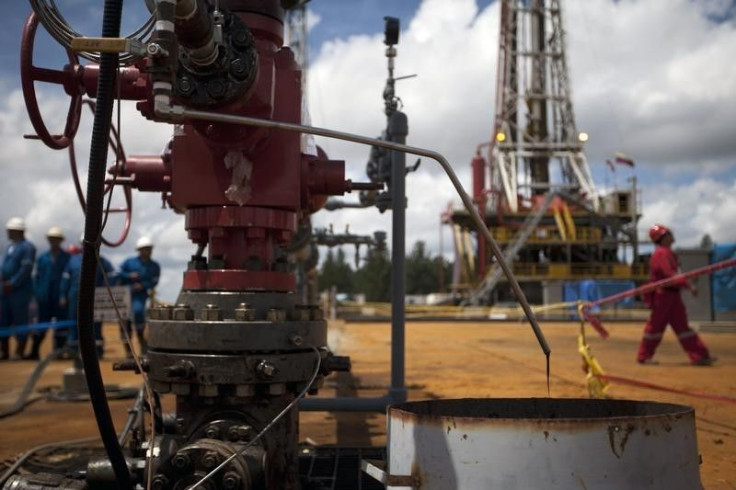Oil Prices Update: Saudi Minister Says OPEC Can't Get Nonmembers To Cooperate

Saudi Arabia's oil minister Sunday said OPEC has had little success in getting nonmembers of the Organization of the Petroleum Exporting Countries to cooperate with it as oil prices plummet. Oil Minister Ali al-Naimi said the other countries want OPEC to prop up oil prices on its own, Reuters reported.
"Today the situation is hard. We tried, we held meetings and we did not succeed because countries [outside OPEC] were insisting that OPEC carry the burden and we refuse that OPEC bears the responsibility," Naimi said on the sidelines of a Riyadh energy conference.
"The production of OPEC is 30 percent of the market, 70 percent from non-OPEC. ... Everybody is supposed to participate if we want to improve prices."
Benchmark Brent crude settled at $55.32 a barrel Friday, about half of what it was selling for in the summer of 2013. The price collapse is blamed on oversupply and weakening demand. Mohammed al-Madi, Saudi Arabia's OPEC governor, said he does not foresee oil reaching $100-$120 a barrel in the near future.
"It is in OPEC's interest to achieve balance in the market. The price is decided by the market, and the market is subject to supply and demand," Madi said, according to Economic Times.
Saudi Arabia has been determined to ride out the price slump and keep production steady, and Naimi said politics has not played a role in that position. "There is no conspiracy and we tried to correct all the things that have been said but nobody listens," Naimi said. "We are not against anybody, we are with whoever wants to maintain market stability and the balance between supply and demand, and [with regard to] price the market decides it."
The lower prices have put pressure on Iran, which also is reeling under the burden of western sanctions imposed as a result of its nuclear program. They also have forced cutbacks in the U.S. shale oil industry, which spends much more to produce a barrel of oil than what it costs to produce from established wells in the Middle East.
Saudi Arabia produces about 10 million barrels a day and could increase production if necessary, but Naimi said there currently are no plans to increase production "because there is no demand." Madi said despite the slump now, $40 trillion in investment is needed to meet future demand. Nasser al-Dossary, Saudi Arabia's national representative at OPEC, projected crude demand is expected to grow by 1 million barrels a day annually for the next 15 years.
"If you want a stable market 10 years from now, then you have to invest now," Madi said.
© Copyright IBTimes 2024. All rights reserved.






















